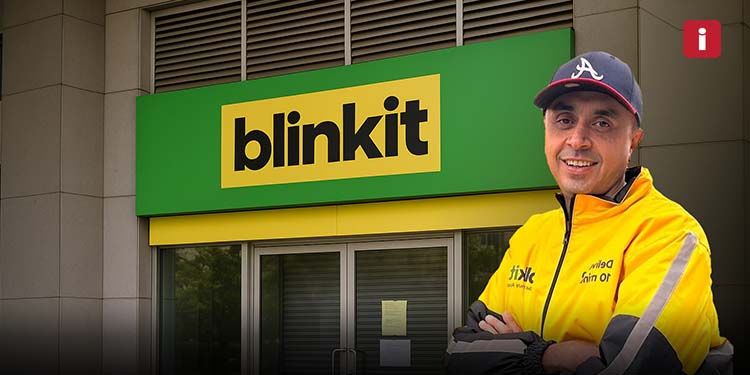In a critical regulatory action that could signal a shift in how India’s quick-commerce industry is policed, the Maharashtra Food and Drug Administration (FDA) has suspended the food business licence of a Blinkit-operated dark store in Pune’s Balewadi area. The move follows an inspection conducted on June 5, 2025, where multiple food safety violations were identified, most notably, the absence of a valid FSSAI licence.
What the FDA Found
The FDA inspection, part of a larger crackdown on dark stores across Maharashtra, uncovered several key non-compliance issues at the Blinkit facility:
- The facility was operating without a valid licence from the Food Safety and Standards Authority of India (FSSAI), in direct violation of Section 31(1) of the Food Safety and Standards Act, 2006.
- Food items were stored directly on the floor, with stagnant water observed in multiple areas.
- Refrigeration and temperature-control systems failed to meet hygiene standards.
- Documentation related to food handling, expiry tracking, and storage compliance was either unavailable or improperly maintained.
These violations led the FDA to immediately suspend the store’s food business licence. The store is prohibited from producing, storing, or selling food items until the required corrective measures are taken.
Official Statement from FDA Pune
Suresh Annapure, Joint Commissioner of the FDA (Pune division), issued the following statement:
“Our team identified critical lapses in regulatory compliance at the Blinkit facility in Balewadi. Operating without a valid FSSAI licence is a direct breach of the Food Safety Act. We have directed the operator to submit the necessary documentation and address hygiene deficiencies. A reinspection will be scheduled once the compliance report is filed.”
Regulatory Pressure on Dark Stores
The incident forms part of a broader effort by Maharashtra’s FDA to enforce hygiene and licensing regulations across the growing dark store segment — warehouses that power the 10–15 minute grocery delivery model popularized by quick-commerce platforms like Blinkit, Zepto, and Swiggy Instamart.
Earlier this month, a similar action was taken against Zepto’s dark store in Mumbai’s Dharavi, where expired food items and fungal contamination were discovered.
Yogesh Kadam, Minister of State for FDA, recently announced statewide inspections to ensure all dark stores comply with the Food Safety and Standards Act and its Schedule 4 hygiene regulations. These rules mandate strict protocols on staff hygiene, food segregation, pest control, temperature maintenance, and proper documentation.
Implications for Blinkit and the Industry
This licence suspension may be a turning point in how quick-commerce companies manage backend operations. While their mobile apps promise speed and convenience, backend facilities are often outside the public eye making them vulnerable to lapses in safety and accountability.
If more stores are found to be in violation, the consequences could be significant:
- Increased regulatory oversight across all major cities.
- Delayed service fulfillment due to store closures.
- Risk of reputational damage, especially for publicly known brands like Blinkit (backed by Zomato).
- Greater demand from consumers for transparency in food sourcing and handling.
For Blinkit, this specific store will remain shut until it obtains a valid FSSAI licence and clears the reinspection. There is no current confirmation on when operations may resume.
What Blinkit Must Do Next
To lift the suspension, Blinkit must complete the following steps:
- Apply for and obtain a valid FSSAI licence for the Pune facility.
- Submit a full compliance report addressing all hygiene and documentation deficiencies.
- Allow FDA inspectors to re-audit the premises after corrective action is completed.
Only upon successful reinspection will the FDA consider reinstating the licence.
Insight Tech Talk Analysis
As quick commerce continues to redefine urban convenience, regulatory frameworks are catching up. The days of growth at all costs where operations scaled faster than compliance are coming to an end.
Consumers may be getting groceries in minutes, but this speed must not come at the cost of hygiene or safety. Regulatory bodies are making it clear: all players in the food ecosystem, whether traditional or digital-first, will be held to the same standards.
This Blinkit suspension is not just a local incident. It is a warning to the entire sector.
Conclusion
The Maharashtra FDA’s action against Blinkit is one of the most visible steps yet in bringing regulatory discipline to India’s fast-growing dark store industry. As scrutiny increases, companies must reassess their compliance strategies not just to avoid penalties, but to maintain long-term consumer trust.
For Blinkit, the next few weeks will be critical in demonstrating whether they can meet the standards they promised to uphold.













































